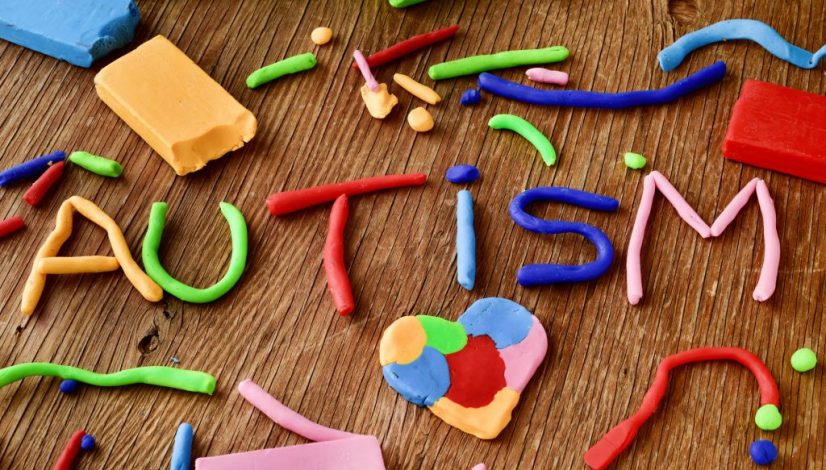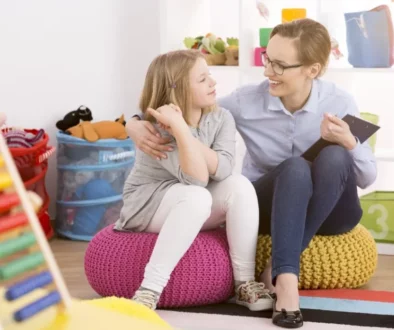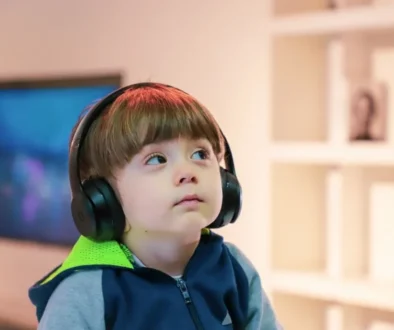Preparing for Your Child’s Autism Evaluation: What to Do and Bring
Research shows that 1 in 54 children have Autism Spectrum Disorder.
We don’t need research to tell us that 100% of parents want to give their child the best chance of succeeding. And if you are wondering if your child has ASD, the best chance of success is through an early diagnosis.
The first step to helping your child with autism thrive is getting a professional autism evaluation. This can seem like a big challenge, but with some simple preparation, you can be prepared to share your concerns with the diagnostic team.
If getting an autism diagnosis seems overwhelming, keep reading. We clarify the basic steps to take to prepare for your child’s autism evaluation so that you can feel confident when you walk into your assessment, ready to help your child get the help he or she needs.
What is Autism Spectrum Disorder?
ASD is a condition that brings challenges in many areas of a child’s development. Children with autism will develop differently in areas like speech, socializing, attention, and motor function.
As a parent, you may notice the signs of autism as young as six months of age. Some children do not exhibit signs of autism until later. Professional testing can start as early as 18 months.
What Should I Bring to My Child’s Autism Evaluation?
A professional autism evaluation will take more than one session. The first appointment will focus on hearing your story and reading the documentation you bring. Testing for autism will happen in the second and third meetings.
Health History
It will be important to know if there are any major risk factors for autism in your child’s life. Come prepared to talk about the following:
Family History
Family history plays a key role in assessing your child for autism, so take some time to consider these questions.
- Does your child have older siblings living with ASD?
- Do you have any relatives with autism, diagnosed or undiagnosed?
- How old was the child’s parents at the time of his or her birth? (Research has suggested a link between autism and older parents.)
If your child is adopted, these questions may be hard to answer. Simply bring any information and documentation about your child’s biological family health that you can.
Birth History
Was your child born very preterm (before 26 gestational weeks)? Were there any complications with his or her birth? Did he or she have a reduced oxygen supply during birth, or did he or she have a very low birth weight?
All of these factors are linked to a higher risk of developing autism. If there was anything unusual about your child’s gestation and birth, be sure to make a note of it and let us know at your first appointment.
Personal Health
Other health disorders often happen with autism. Recall and make notes about the major health problems in your child’s life.
Some of the health problems that often happen with autism are very common, including gastrointestinal problems, difficulty sleeping, and anxiety. Others are more rare, including inherited genetic conditions such as fragile X syndrome. Your health history list should include any disorders or problems outside of the normal scope.
What to bring: your own notes about health problems in any of these areas, as well as any official medical documentation.
Developmental History
Children with autism may not reach their developmental milestones at the same rate as neurotypical children. Here are a few questions to start you thinking about what to bring up at your child’s autism evaluation:
- When did your child first speak?
- Does your child remember the words he or she learns, or seem to forget them easily?
- Does he or she continue to grow their vocabulary by learning new words?
- Does your child seem to understand the words and phrases he or she says?
- When did your child first seem to understand his or her name?
- When did your child begin to walk and use other motor functions?
- Did you ever take your child to a doctor to address these concerns? What interventions were tried, and how did your child respond?
What to bring: your own notes about when your child reached his or her milestones; copies of any testing done by doctors on your child’s developmental abilities.
Behavioral History
Every child with ASD has a unique array of behavior differences. An in-depth picture of how your child behaves is key to getting a correct diagnosis, and also in developing a specialized plan for your child.
Set aside some time to think carefully about your child’s social and personal behaviors. Be sure to write down the key points and bring them with you when you come to the first assessment meeting.
Social behaviors to think about:
- Not responding to his or her name
- Avoiding eye contact with others
- Not respond to facial expressions – for instance, not smiling back when someone smiles at them
- Consistently preferring to play alone than with others
- Not starting conversations in an age-appropriate way (a younger child might start a “conversation” by bringing a toy over to share his excitement, while an older child starts spontaneous conversations)
Other behaviors to think about:
- Repetitive habits such as rocking back and forth
- Developing unusual routines or rituals, and getting very upset when they are changed
- Difficulty coordinating movements; seeming extremely clumsy or awkward when walking and using body language
- Seeming indifferent to pain, even forming habits such as self-hitting or banging his or her head without seeming to notice pain
- Becoming extremely fixated on one habit, activity, or object
- Seeming upset at new food textures or clothing/bedding textures
In addition to your own observations, it’s helpful to have the input of anyone else who cares for your child. This includes teachers, babysitters, and family members.
To make this process easier, Developmental Pediatrics of Texas has an online form where you, along with your child’s teachers and caregivers, can submit this information. This makes it quick and easy to collect all the relevant information from everyone in your child’s life.
What to bring: your own notes on your child’s behaviors, and any results of tests done by teachers, resource support workers, or other professionals. Have those who know your child well submit the online form ahead of time to streamline the process.
What Happens Now?
If you feel overwhelmed by all these questions, just remember: an autism evaluation is all about getting to know your child, and no one knows your child better than you do. The process may seem intimidating at the start, but it is all about helping you support your child to reach his or her potential – and you are the expert at that.
Your journey and your questions will be as unique as your child. Whether you’re concerned, curious, or just have a question, feel free to contact Developmental Pediatrics of Texas. We are here to help you and your child on the path to a thriving adulthood.



